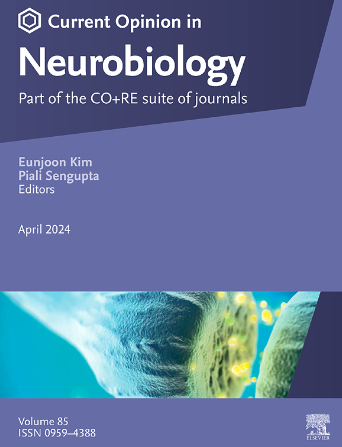The role of the gut-brain axis in bariatric surgery
IF 5.2
2区 医学
Q1 NEUROSCIENCES
引用次数: 0
Abstract
Bariatric surgery is the gold standard for sustained weight loss. Despite common misconceptions, bariatric surgery remodels gut-brain physiology in more complex ways than simply reducing stomach size or causing nutrient malabsorption. Bariatric surgery induces weight loss primarily by reductions in food intake and alterations in feeding patterns, macronutrient preference, and the rewarding aspects of food. Bariatric surgery also enhances nutrient-induced brain activation, alters nutrient processing, enhances gut hormone secretion, and increases bile acids. However, which of these signals directly link to improved satiety and altered reward pathways remains unclear. While state-of-the-art tools are now available to manipulate specific subpopulations of peripheral sensory neurons, work is needed to apply these tools to obesity and bariatric surgery. This will be critical for advancing the understanding of the role of the gut-brain axis in the success of surgery and allowing for the continued expansion of therapeutic options for obesity.
肠脑轴在减肥手术中的作用
减肥手术是持续减肥的黄金标准。尽管存在普遍的误解,但减肥手术以更复杂的方式重塑了肠-脑生理,而不仅仅是缩小胃的大小或引起营养吸收不良。减肥手术主要通过减少食物摄入量和改变喂养模式、常量营养素偏好和食物的有益方面来诱导体重减轻。减肥手术还可以增强营养诱导的大脑激活,改变营养处理,增强肠道激素分泌,增加胆汁酸。然而,这些信号中哪一个与提高饱腹感和改变奖励途径直接相关尚不清楚。虽然目前最先进的工具可用于操纵周围感觉神经元的特定亚群,但需要将这些工具应用于肥胖和减肥手术。这对于促进对肠脑轴在手术成功中的作用的理解以及允许肥胖症治疗选择的持续扩展至关重要。
本文章由计算机程序翻译,如有差异,请以英文原文为准。
求助全文
约1分钟内获得全文
求助全文
来源期刊

Current Opinion in Neurobiology
医学-神经科学
CiteScore
11.10
自引率
1.80%
发文量
130
审稿时长
4-8 weeks
期刊介绍:
Current Opinion in Neurobiology publishes short annotated reviews by leading experts on recent developments in the field of neurobiology. These experts write short reviews describing recent discoveries in this field (in the past 2-5 years), as well as highlighting select individual papers of particular significance.
The journal is thus an important resource allowing researchers and educators to quickly gain an overview and rich understanding of complex and current issues in the field of Neurobiology. The journal takes a unique and valuable approach in focusing each special issue around a topic of scientific and/or societal interest, and then bringing together leading international experts studying that topic, embracing diverse methodologies and perspectives.
Journal Content: The journal consists of 6 issues per year, covering 8 recurring topics every other year in the following categories:
-Neurobiology of Disease-
Neurobiology of Behavior-
Cellular Neuroscience-
Systems Neuroscience-
Developmental Neuroscience-
Neurobiology of Learning and Plasticity-
Molecular Neuroscience-
Computational Neuroscience
 求助内容:
求助内容: 应助结果提醒方式:
应助结果提醒方式:


